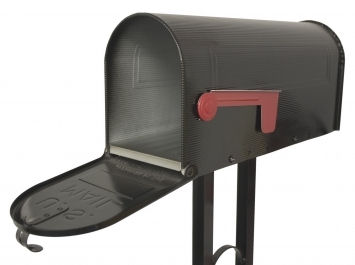 You sent out a few resumes for job openings that matched your skills. You researched the companies and demonstrated some of that new-found knowledge in your cover letters. You communicated a positive tone. You had someone else proofread your work before you submitted each resume.
You sent out a few resumes for job openings that matched your skills. You researched the companies and demonstrated some of that new-found knowledge in your cover letters. You communicated a positive tone. You had someone else proofread your work before you submitted each resume.
Then you waited, and waited … and waited some more. No calls, no emails. No response, whatsoever.
What happened?
If your resume submissions are getting no response, and you've verified that there are no typos or other obvious errors, maybe you overlooked one of these five critical components of the job search:
(1) You focused on duties rather than accomplishments.
Anyone can list what they did in whatever job they had. But employers don't care about your past job descriptions, they want to know how you made a difference for your past or current employer. Did you change a process to make it more efficient? Did you take on a tough project and execute it well, winning applause from your boss and others? Did you help increase sales in a key target market?
These are the things would-be employers are most interested in that will increase your chance of being called in for an interview. It's not always easy to remember your outstanding accomplishments after the fact. Start keeping a journal so you can easily refer to them when you need to.
(2) You didn’t follow the employer’s directions.
If the employer asks you to apply using their own web form, don’t fax your resume or send an email with your resume attached (or if you do, make it a follow-up to the employer-specified method). Be sure to read the entire job description, as well as the instructions for submitting your resume.
(3) You didn’t “market” yourself effectively.
In short, your cover letter and Objective or Professional Summary focused more on how the job would benefit you instead of how you and your skills would benefit the company. Think about it this way: If a car salesperson is trying to sell you an automobile, you won’t hear how your purchase would help the dealership. A big part of landing that next job is demonstrating how your skills and background would fit the job and benefit the company’s growth. Remember: While you obviously want a good job that can be a good fit and possibly help your career, you can’t explicitly communicate that when you make your opening pitch to an employer.
(4) You revealed your age, and the employer prefers someone younger.
Yes, age bias is against the law in hiring, but it's alive and well, and often difficult to prove. Don’t give them any ammunition to prevent them from considering you. For instance, if you graduated from college in the late 1970s, don’t include your graduation date on your resume. If you have more than 15 years of relevant work experience, don’t detail any experience beyond that point (unless it’s more relevant to the job you’re seeking than your more recent experience).
(5) You didn't use enough keywords from the job description.
Employers, especially the larger ones, will winnow a high number of resume submissions by scanning them electronically for keywords or phrases that come right from the job description. If you don’t have a few of them in your resume, chances are you won’t make that first cut.
To improve your chances, compare your resume to each job posting you answer. Edit where necessary to match their wording, as long as you’re not misrepresenting or stretching the truth about your background or skills. Look for specialized terms such as project leader, Cold Fusion experience, prepared software specifications and test plans, or expert in Sarbanes-Oxley compliance.
If you've been guilty of one or more of these five resume infractions, correcting them may help you move past that important first hurdle: having your resume read and being invited for an interview.
Ready To Jump Start Your Job Search?
